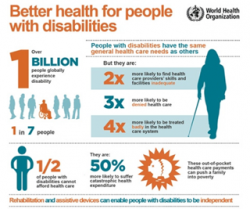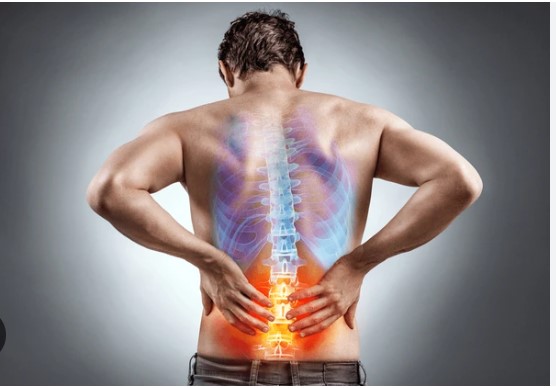International Day of Persons with Disabilities
- 30 November 2015 - 06:33 PM
- Comment(s)

3rd December is the International Day of Persons with Disabilities.
The World Health Organization (WHO) will be celebrating the day with an event around the WHO Global Disability Action Plan 2014-2021 that aims for better health for all people with disability.
There will be a special focus on Community-based rehabilitation (CBR).
Community-based rehabilitation (CBR) focuses on enhancing the quality of life for people with disabilities and their families; meeting basic needs; and ensuring inclusion and participation. It is a multi-sectoral strategy that empowers persons with disabilities to access and benefit from education, employment, health and social services. CBR is implemented through the combined efforts of people with disabilities, their families and communities, and relevant government and non-government health, education, vocational, social and other services.
The occasion will also be used to launch the CBR Indicators Manual and the CBR Online Training Tool.
The first ever World report on disability, produced jointly by WHO and the World Bank, suggests that more than a billion people in the world today experience disability.
People with disabilities have generally poorer health, lower education achievements, fewer economic opportunities and higher rates of poverty than people without disabilities. This is largely due to the lack of services available to them and the many obstacles they face in their everyday lives. The report provides the best available evidence about what works to overcome barriers to health care, rehabilitation, education, employment, and support services, and to create the environments which will enable people with disabilities to flourish. The report ends with a concrete set of recommended actions for governments and their partners.
This pioneering World report on disability will make a significant contribution to implementation of the Convention on the Rights of Persons with Disabilities. At the intersection of public health, human rights and development, the report is set to become a "must have" resource for policy-makers, service providers, professionals, and advocates for people with disabilities and their families.




Leave Comments